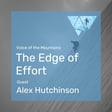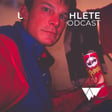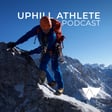
Trail Running Series: Environmentalism and Trail Running with Damian Hall
Alyssa sits down with another special guest for the trail running series, professional runner, environmental activist and writer, Damian Hall. Damian has a wide variety of racing experience and success from a Spine Race Course Record, to a Pennine Way FKT and a 5th place finish at UTMB. He is also a coach, journalist and author of two books including We Can’t Run Away From This which examines the impact of running and racing on the climate crisis. The two discuss Damian’s trail running journey alongside his environmental activism. They dive into the balance of choosing goal races while reducing environmental impact. Damian also gives advice on reducing waste in gear, nutrition and hydration and how to make running as sustainable as possible. The two wrap up discussing the future implications of environmental disasters as well as the importance of advocating and taking a stance to change environmental policies for future generations.
If you are interested in learning more about Damian’s initiatives and joining the organization he co founded, check out thegreenrunners.com
If you would like to learn more about uphill athlete, please visit uphillathlete.com or write to us at coach@uphillathlete.com
https://bit.ly/43wuU7L



















